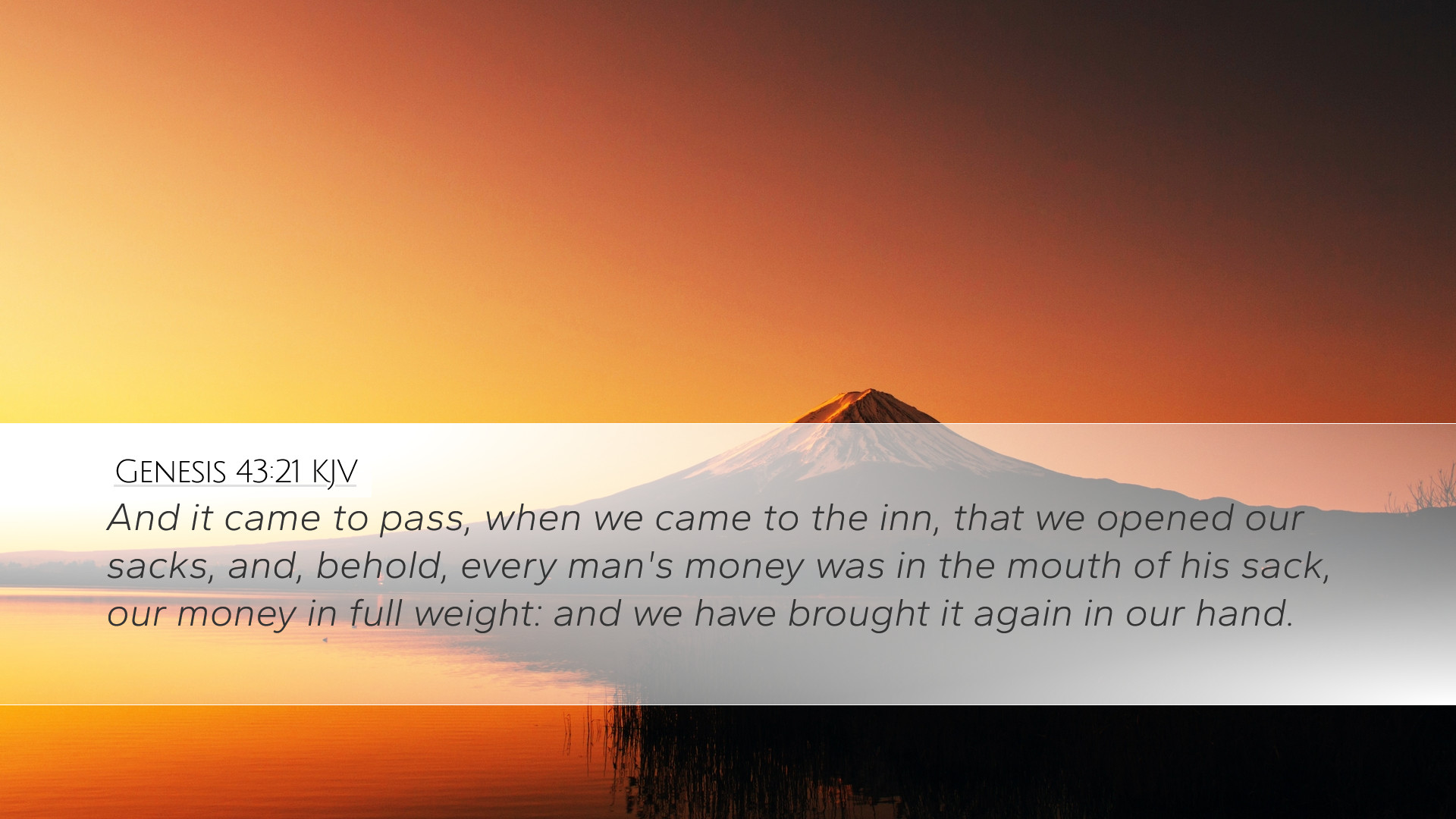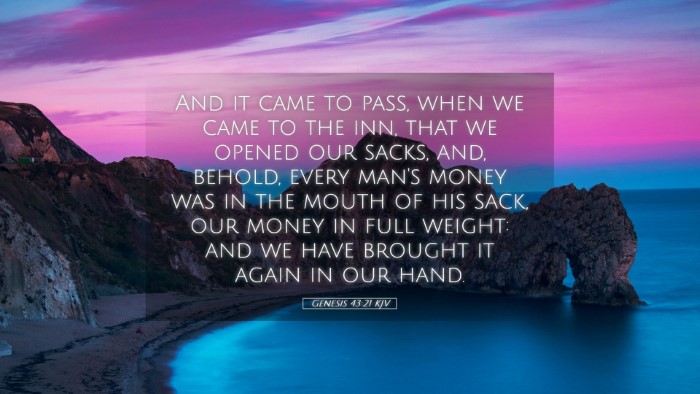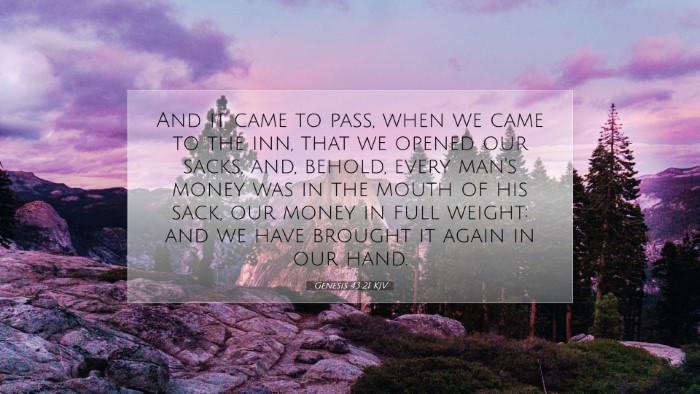Commentary on Genesis 43:21
Verse Reference: Genesis 43:21: "And it came to pass, when we came to the inn, that we opened our sacks, and, behold, every man's bundle of money was in his sack; and when both they and their father saw the bundles of money, they were afraid."
Introduction
This poignant verse occurs during the narrative of Joseph's interaction with his brothers, reflecting a moment of fear and uncertainty. In the context, the brothers are returning to Egypt with provisions but are confronted by the discovery of their money in their sacks, suggesting themes of guilt, providence, and divine sovereignty that are ripe for theological exploration.
Contextual Analysis
The setting of Genesis 43 occurs after a period of famine that has forced Jacob's sons to go to Egypt to acquire grain. This chapter illustrates not only their physical sustenance needs but also the complexities in their familial relationships and the unfolding of God's plan for Israel.
Addressing Fear
Upon realizing the money has been returned, fear grips the hearts of Joseph's brothers. Their reaction is emblematic of a deeper unease tied to their past transgressions against Joseph. Matthew Henry notes that their fear is a reflection of their guilt and the guilt that often accompanies the repercussions of one's actions.
God's Sovereignty in Human Affairs
Several commentaries discuss God's hand in allowing this situation to arise. Albert Barnes highlights that the discovery was not merely a coincidence but a designed element to bring the brothers closer together and eventually lead to reconciliation. Barnes elaborates on the nature of divine providence, illustrating how God orchestrates circumstances for His purposes, even when they seem troubling from a human perspective.
Theological Implications
Genesis 43:21 serves as a pivotal moment that reveals significant theological insights regarding God's relationship with humanity. The brothers, feeling fear, represent the common human experience of facing the consequences of one's actions, potentially leading to a transformative spiritual awareness.
The Nature of Guilt and Redemption
Echoing Adam Clarke's commentary, the verse signifies the transition from fear of retribution to eventual reconciliation. Clarke elaborates on how fear can be a precursor to repentance. The brothers’ acknowledgment of their previous wrongdoing begins a cycle leading towards a redemptive outcome.
The Role of Reputation and Relationships
As noted by various scholars, relationships play a crucial role in this narrative. The fear instilled in the brothers signifies concern not just for themselves, but for their father Jacob as well. Their collective journey reflects the intricate dynamics of familial bonds. Matthew Henry discusses how our actions impact those around us, especially in family settings.
Lessons for Today
Genesis 43:21 presents timeless lessons for Christians today. The realistic portrayals of fear, anxiety, and regret resonate deeply, reminding believers that God works through even the most troubling situations.
- Embracing Fear: Allowing fear to be a catalyst for deeper reflection and ultimately for seeking God’s truth.
- Understanding Divine Providence: Recognizing that what may appear as misfortune may indeed fulfill God's greater plan.
- Prioritizing Relationships: Acknowledging that our actions reverberate through our relationships; our personal integrity affects our fellowship with one another.
- Seeking Reconciliation: Engaging in restoration processes that reflect God's grace and forgiveness, emulating Joseph's eventual disposition towards his brothers.
Conclusion
Genesis 43:21 serves as a powerful reminder of the intertwined nature of human experience and divine purpose. This account invites pastors, students, and theologians alike to delve deeper into the implications of fear, guilt, and redemption, ultimately showcasing that through God’s orchestration, all events can lead to the restoration of relationships and reconciliation with God.
May this commentary enrich your understanding and inspire further study of this profound narrative.


